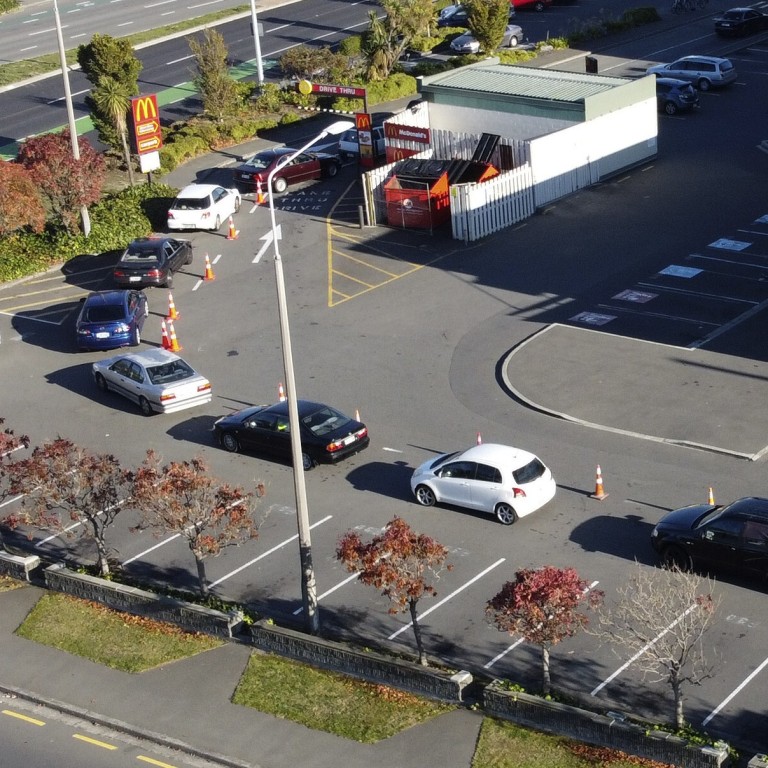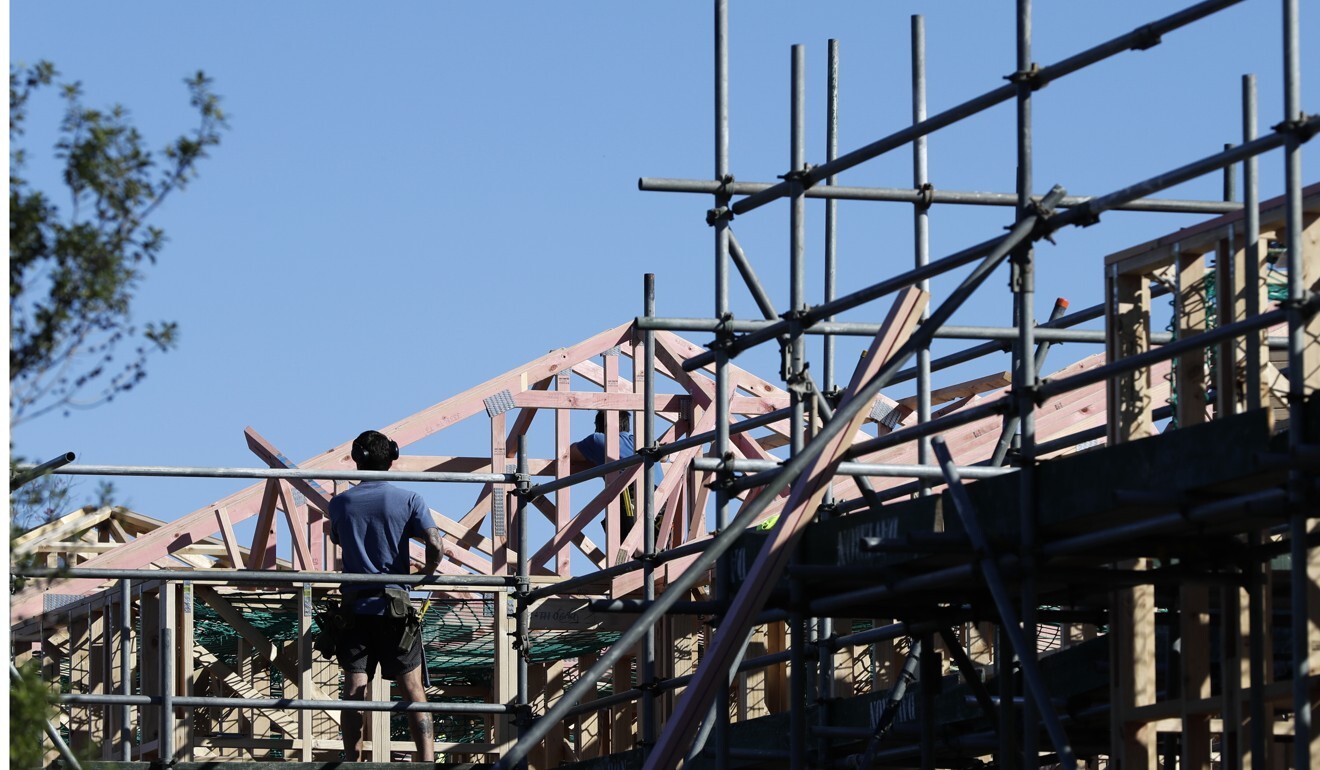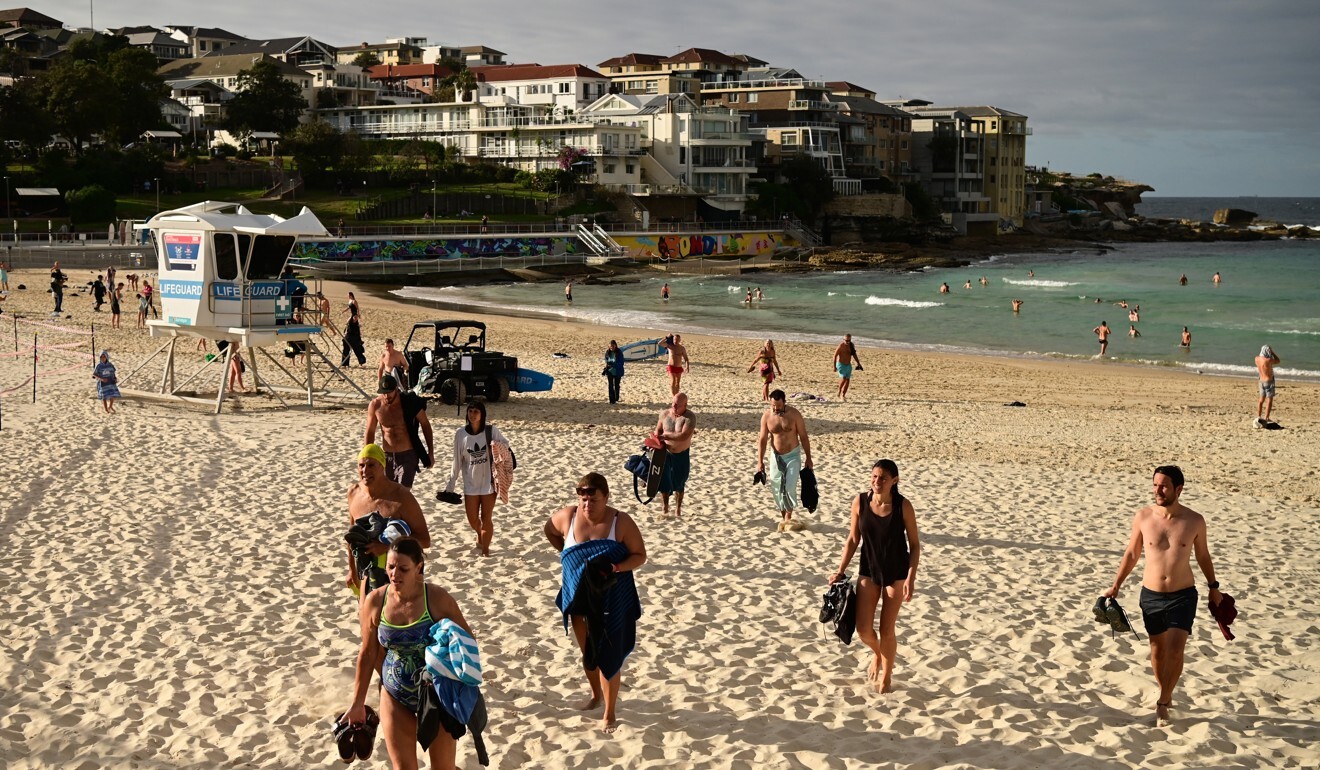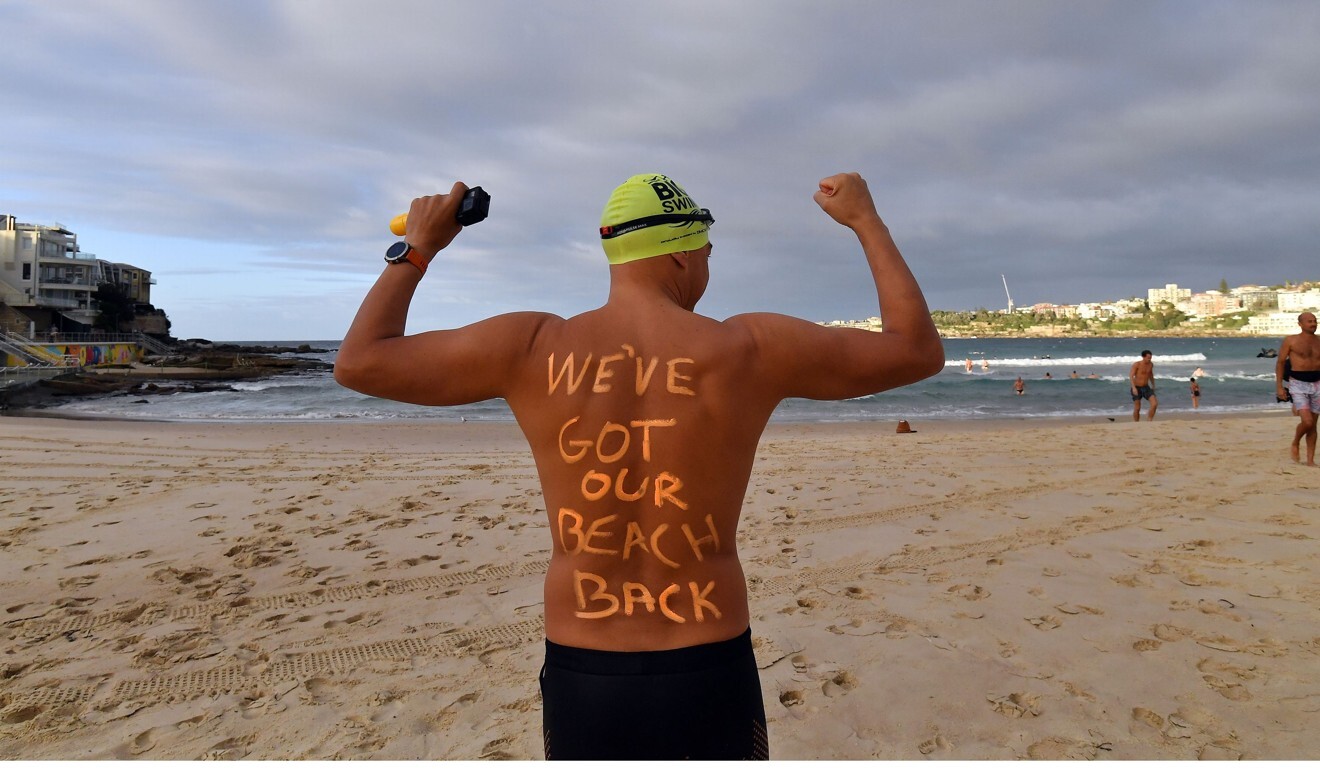
New Zealanders rush for fast food and takeaway coffee as coronavirus lockdown is relaxed
- Around 400,000 people returned to work on Tuesday after Prime Minister Jacinda Ardern shifted the Covid-19 alert level down a notch
- In Australia, beaches in Sydney were reopened as New South Wales said it would relax some restrictions on movement
Around 400,000 people returned to work after Ardern shifted New Zealand’s alert level down a notch, loosening some of the tough movement restrictions that shut down businesses for weeks.
“It’s hard to explain how good this tastes,” Christopher Bishop, a lawmaker, said on Twitter after posting a picture with a takeaway coffee cup.

Long queues of cars snaked up to McDonald’s outlets in Auckland and Wellington from the early hours as people sought a fast food fix.
“We got quarter pounders, Big Macs, drinks … I’ve still got two cheeseburgers left but I can’t finish them,” Tai Perez, who arrived at a McDonald’s outlet in Auckland at 4am, was quoted as saying by The New Zealand Herald.
New Zealand’s 5 million residents were subjected to one of the strictest lockdowns in the world in response to the coronavirus pandemic, with Ardern shutting down much of the country from March 26.
Ardern said those measures had paid off. New Zealand has reported just 1,122 confirmed cases of Covid-19, including 19 deaths, one of the lowest tallies in the world.
“We can say with confidence that we do not have community transmission in New Zealand. The trick now is to maintain that,” Ardern told Radio New Zealand on Tuesday.
There was growing debate among officials and academics about the terminology that should be used for New Zealand’s status in relation to the coronavirus spread, with some saying “elimination” would not allow for recurrent small numbers of cases. They point to the fact that the country reported five new cases and one death on Monday.
“When I talk about elimination it does not mean zero cases, it means zero tolerance for cases,” Ardern said. “The idea of Covid being completely gone, that is eradication – so there are important differences there.”
Coronavirus: New Zealand sees no new community transmission
New Zealand is maintaining several social distancing policies despite the step down in the alert level with malls pubs, hairdressers and other public shopping areas to stay shut for at least another two weeks.
Siouxsie Wiles, a microbiologist and associate professor at the University of Auckland, was among those warning the virus could return if lockdown measures were eased too quickly.
“If we turn our backs for a minute, we’ll be on the path to a serious outbreak once again. And we’ve seen this happen overseas,” Wiles wrote in a column on the online news site The Spinoff.

Bondi Beach and two neighbouring beaches in Sydney were reopened to local residents on Tuesday after being closed a month ago due to large crowds breaking social distancing rules.
New South Wales (NSW) state, which is home to nearly half of Australia’s 6,723 cases of Covid-19, said it would let up to two adults visit another person’s home from Friday, relaxing a stay-at-home policy and ban on non-essential movement.
Almost 2 million Australians download coronavirus tracing app
“For many people, they’ve been cooped up in their homes for a number of weeks, and with the exception of exercising, medical needs or buying what they need to or going to work, many people have been isolated in their homes,” NSW Premier Gladys Berejiklian told reporters in Sydney.
“Two adults will be able to go and visit anybody else in their home on the basis of care, on the basis of reducing socialisation and everybody’s mental health.”
Children were allowed to accompany adults on house visits, but people who were feeling unwell should stay home, Berejiklian added.

Australia, which closed its external and internal borders, imposed an early shutdown of businesses, and issued strict social distancing rules, has avoided the high numbers of coronavirus cases and deaths seen in other countries.
Australian states are starting to relax some restrictions as the local rate of new infections slows to barely 1 per cent per day, compared to 25 per cent a month ago. The country has recorded 84 deaths associated with the virus.
State governments have set up coronavirus testing centres and are now encouraging people to undergo tests regardless of whether they have symptoms.
Can New Zealand really eliminate coronavirus? Experts are divided
Federal Treasurer Josh Frydenberg, who was due to deliver the country’s Budget next month but delayed it until October because of the virus response, said he would deliver an coronavirus economic statement in parliament on May 12.
Australia is expected to plunge into its first recession in 30 years due to the economic hit from the coronavirus, and the government has committed A$320 billion (US$206 billion), or about 16 per cent of GDP, in relief funding, the country’s biggest emergency package ever.
Australia warns China against ‘economic coercion’ over coronavirus probe
At a Senate hearing on Tuesday, Australian Treasury secretary Stephen Kennedy said government data showed jobs in the accommodation, food, arts and recreation industries fell by up to a quarter in the three weeks to April 4. Overall unemployment was expected to roughly double to more than 10 per cent in the three months to end-June, he said.
“Unemployment rose to higher levels in the Great Depression, but it did that over the course of a couple of years. These movements are happening in just a couple of months,” he told the hearing.

